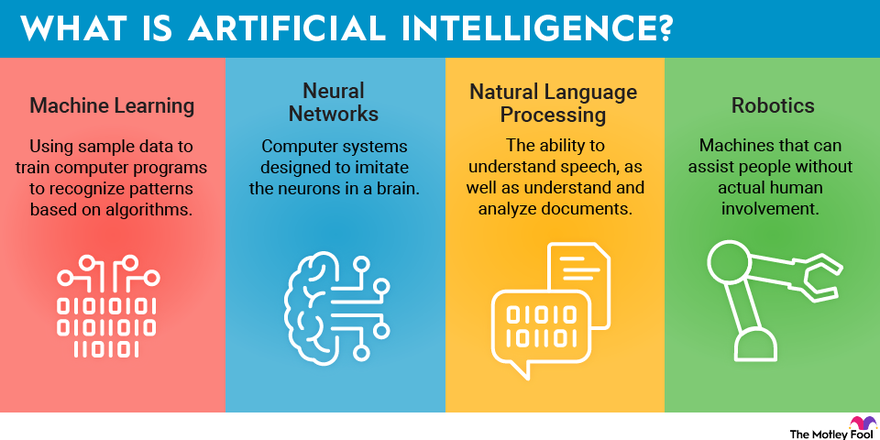Expert System (AI) is transforming education while making finding out more available but also sparking arguments on its impact.

While trainees hail AI tools like ChatGPT for enhancing their learning experience, speakers are raising issues about the growing reliance on AI, which they argue fosters laziness and undermines scholastic integrity, specifically with many students not able to defend their projects or given works.
Prof. Isaac Nwaogwugwu, a lecturer at the University of Lagos, in an interview with Nairametrics, revealed aggravation over the growing reliance on AI-generated reactions amongst students recounting a recent experience he had.
RelatedStories
Avoid sharing individual info that can determine you with AI tools- Expert warns
Chinese AI app DeepSeek stimulates international tech selloff, challenges U.S. AI supremacy
"I gave a task to my MBA students, and out of over 100 students, about 40% submitted the precise very same answers. These trainees did not even understand each other, but they all utilized the exact same AI tool to create their actions," he stated.
He noted that this pattern prevails among both undergraduate and postgraduate students but is particularly concerning in part-time and range learning programs.
"AI is a serious difficulty when it concerns assignments. Many students no longer think critically-they simply go online, create responses, and send," he included.
Surprisingly, some lecturers are likewise accused of over-relying on AI, setting a cycle where both educators and students turn to AI for convenience instead of intellectual rigor.
This dispute raises crucial concerns about the function of AI in scholastic integrity and student development.
According to a UNESCO report, while ChatGPT reached 100 million regular monthly active users in January 2023, only one country had actually launched guidelines on generative AI as of July 2023.
Since December 2024, ChatGPT had more than 300 million people using the AI chatbot every week and 1 billion messages sent out every day around the globe.
Decline of scholastic rigor
University speakers are increasingly concerned about students sending AI-generated projects without genuinely comprehending the material.
Dr. Felix Echekoba, a speaker at Nnamdi Azikiwe University, revealed his concerns to Nairametrics about trainees increasingly counting on ChatGPT, just to have a hard time with answering fundamental concerns when checked.

"Many trainees copy from ChatGPT and send refined assignments, but when asked basic questions, they go blank. It's disappointing due to the fact that education has to do with learning, not just passing courses," he said.
- Prof. Nwaogwugwu explained that the increasing number of superior graduates can not be totally credited to AI however confessed that even high-performing trainees utilize these tools.
"A top-notch trainee is a superior trainee, AI or not, but that does not indicate they don't cheat. The advantages of AI may be peripheral, however it is making trainees dependent and less analytical," he stated.
- Another speaker, Dr. Ereke, from Ebonyi State University, raised a various issue that some lecturers themselves are guilty of the exact same practice.
"It's not just trainees utilizing AI slackly. Some speakers, out of their own laziness, produce lesson notes, course describes, marking plans, and even exam concerns with AI without reviewing them. Students in turn use AI to produce answers. It's a cycle of laziness and it is eliminating genuine knowing," he lamented.
Students' viewpoints on usage
Students, smfsimple.com on the other hand, say AI has enhanced their learning experience by making academic materials more reasonable and accessible.
- Eniola Arowosafe, a 300-level Business Administration trainee at Unilag, shared how AI has actually substantially aided her knowing by breaking down complex terms and offering summaries of prolonged texts.
"AI helped me comprehend things more quickly, particularly when handling complicated subjects," she discussed.
However, setiathome.berkeley.edu she remembered a circumstances when she utilized AI to submit her project, just for her speaker to immediately acknowledge that it was produced by ChatGPT and reject it. Eniola noted that it was a good-bad impact.
- Bryan Okwuba, who recently finished with a first-class degree in Pharmacy Technology from the University of Lagos, strongly believes that his scholastic success wasn't due to any AI tool. He attributes his outstanding grades to actively appealing by asking concerns and focusing on areas that lecturers emphasize in class, as they are typically reflected in test questions.
"It's everything about being present, focusing, and using the wealth of understanding shared by my colleagues," he stated,
- Tunde Awoshita, a final-year marketing student at UNIZIK, confesses to occasionally copying straight from ChatGPT when facing several deadlines.
"To be honest, there are times I copy straight from ChatGPT when I have multiple due dates, and I know I'm guilty of that, a lot of times the speakers don't get to review them, but AI has actually also helped me learn quicker."
Balancing AI's function in education
Experts think the option depends on AI literacy; teaching students and speakers how to use AI as a learning aid instead of a faster way.
- Minister of Education, Dr. Tunji Alausa, highlighted the combination of AI into Nigeria's education system, stressing the value of a balanced approach that preserves human participation while harnessing AI to improve learning outcomes.
"As we navigate the rapidly evolving landscape of Artificial Intelligence (AI), it is vital that we prioritise human firm in education. We need to make sure that AI enhances, instead of replaces, teachers' vital function in forming young minds," he said
Dorcas Akintade, a cybersecurity transformation professional, attended to growing concerns concerning the use of synthetic intelligence (AI) tools such as ChatGPT and their possible threats to the academic system.

- She acknowledged the advantages of AI, however, emphasized the need for care in its use.
- Akintade highlighted the increasing hesitance amongst educators and schools towards including AI tools in learning environments. She identified 2 primary reasons AI tools are prevented in instructional settings: security threats and plagiarism. She described that AI tools like ChatGPT are trained to react based on user interactions, which might not line up with the expectations of educators.
"It is not looking at it as a tutor," Akintade stated, discussing that AI does not deal with particular mentor techniques.
Plagiarism is another problem, as AI pulls from existing information, typically without appropriate attribution
"A great deal of people need to comprehend, like I stated, this is information that has actually been trained on. It is not simply bringing things out from the sky. It's bringing info that some other people are fed into it, which in essence means that is another person's documents," she warned.
- Additionally, Akintade highlighted an early problem in AI development referred to as "hallucination," where AI tools would create information that was not factual.
"Hallucination implied that it was highlighting info from the air. If ChatGPT could not get that details from you, it was going to make one up," she explained.
She advised "grounding" AI by offering it with specific information to avoid such mistakes.
Navigating AI in Education
Akintade argued that banning AI tools outright is not the option, particularly when AI provides a chance to leapfrog conventional educational approaches.
- She believes that regularly enhancing key info helps people keep in mind and prevent making mistakes when faced with difficulties.
"Immersion brings conversion. When you inform individuals the very same thing over and over once again, when they are about to make the errors, then they'll remember."
She also empasized the requirement for clear policies and treatments within schools, keeping in mind that many schools need to resolve the individuals and process aspects of this usage.
- Prof. Nwaogwugwu has actually resorted to in-class projects and tests to counter AI-driven scholastic dishonesty.
"Now, I primarily use assignments to make sure trainees offer initial work." However, he acknowledged that managing large classes makes this technique hard.
"If you set complex questions, trainees will not be able to use AI to get direct answers," he described.
He highlighted the requirement for universities to train speakers on crafting examination questions that AI can not quickly fix while acknowledging that some lecturers struggle to counter AI abuse due to an absence of technological awareness. "Some lecturers are analogue," he said.
- Nigeria released a draft National AI Strategy in August 2024, concentrating on ethical AI advancement with fairness, transparency, responsibility, and privacy at its core.
- UNESCO in a report requires the guideline of AI in education, advising institutions to investigate algorithms, information, and outputs of generative AI tools to ensure they satisfy ethical standards, secure user data, and filter improper content.
- It worries the need to examine the long-term impact of AI on vital skills like thinking and creativity while creating policies that align with ethical structures. Additionally, UNESCO recommends implementing age limitations for GenAI usage to protect younger students and secure susceptible groups.
- For federal governments, it recommended adopting a coordinated nationwide approach to managing GenAI, including establishing oversight bodies and aligning regulations with existing data security and privacy laws. It highlights evaluating AI risks, imposing more stringent rules for high-risk applications, and guaranteeing nationwide data ownership.







